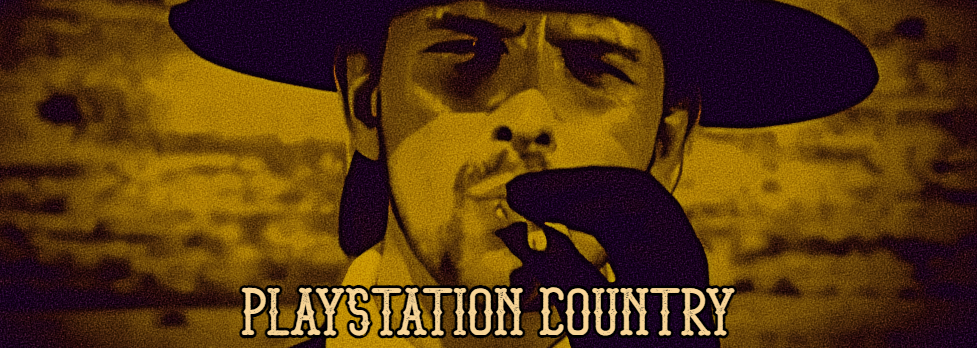One advantage of this job is the opportunity to genuinely see games that fly well and truly under the radar. Grotto is an experimental, narratively-focused effort that places you, intentionally or otherwise, at the helm of a nearby tribe. Despite not being one of them, they seek your advice and they will follow it, for better and worse. It’s an interesting concept that would matter very little if the execution was off. Thankfully, I think Brainwash Gang have handled this very well.
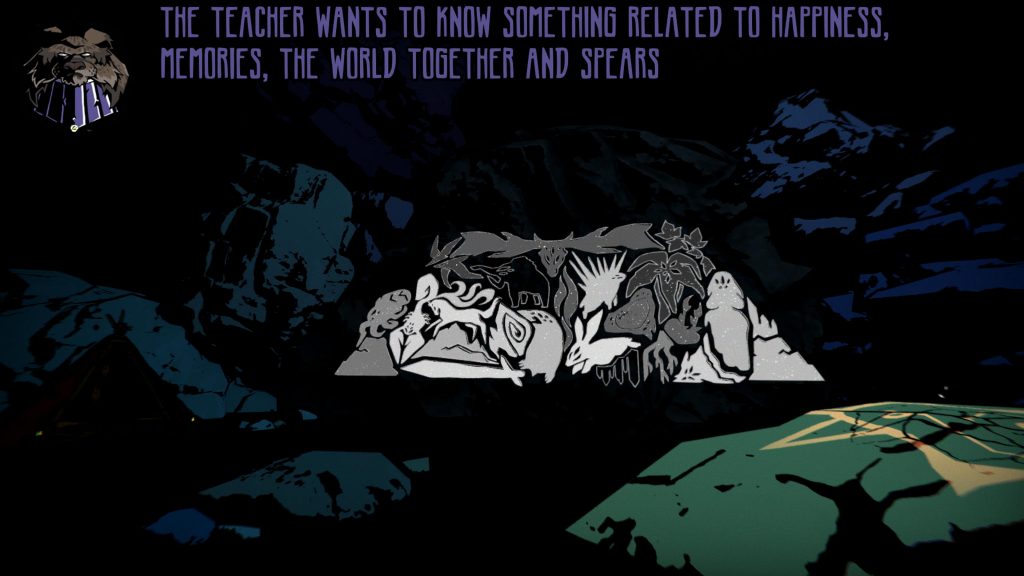 Grotto‘s premise is really quite interesting and not something I’ve seen replicated before. You play a soothsayer who must use the stars to solve local disputes and problems. In a position of trust, you primarily serve The Brutes. They’re a primitive tribe who’s social structure becomes very apparent as the game progresses. Each day, a new person will arrive at the Grotto looking for guidance. Whilst that does lead to repetition, the unravelling of the narrative can be really effective.
Grotto‘s premise is really quite interesting and not something I’ve seen replicated before. You play a soothsayer who must use the stars to solve local disputes and problems. In a position of trust, you primarily serve The Brutes. They’re a primitive tribe who’s social structure becomes very apparent as the game progresses. Each day, a new person will arrive at the Grotto looking for guidance. Whilst that does lead to repetition, the unravelling of the narrative can be really effective.
Returning faces become familiar and their requests inevitably become more complex and morally ambiguous. The conflicts and moral quandary do help keep the game from running out of steam. There’s potential for in-fighting, war and being in a position of trust allows you to influence it all. And this influence comes from above. There is a hole in the ceiling of the cave which allows you to see stars in the night’s sky. These constellations can be mapped out and used as answers to the tribe’s many questions. There’s close to a dozen to find but each comes with a worded description to imply their potential uses.
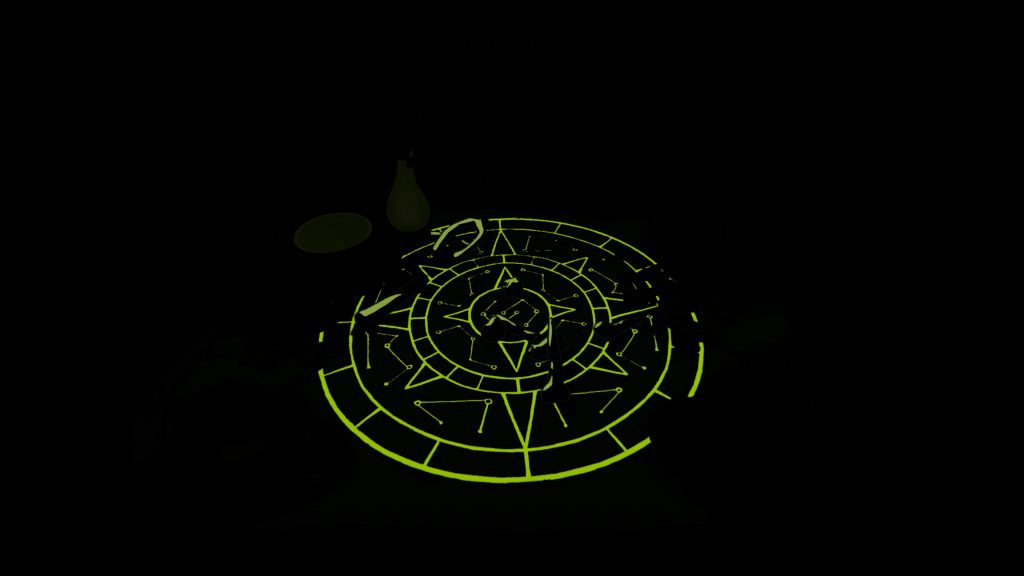 What transpires is often a game of interpretation. Some requests can be easy to fathom. A villager might want to know your favourite colour or star. They might want to know of an animal that hops. Despite this, there appears to be no answer the inquisitors will refuse. The writing does well to cover off any issues with crossed wires and, as the stakes raise, the stars you provide can deliver more obtuse answers.
What transpires is often a game of interpretation. Some requests can be easy to fathom. A villager might want to know your favourite colour or star. They might want to know of an animal that hops. Despite this, there appears to be no answer the inquisitors will refuse. The writing does well to cover off any issues with crossed wires and, as the stakes raise, the stars you provide can deliver more obtuse answers.
I suspect any branching is mostly implied but the narrative does appear to have some key, binary moments. Towards the game’s conclusion, your decisions factor around survival, conquest, life and death. It can feel pretty impactful, especially if you’ve become attached to a visitor. I grew to like certain characters and some of my missteps felt devastating as I heard news of the tribe’s fortunes.
At the same time, I never felt the need to do anything over. Narratively-driven games always have me considering my first (sometimes only) playthrough as canon. The game did give me rare chances to make amends but, it’s a testament to the writing that I kept going down whatever path I’d picked. It felt like a flowing story without any jarring moments of the wheels getting back on track.
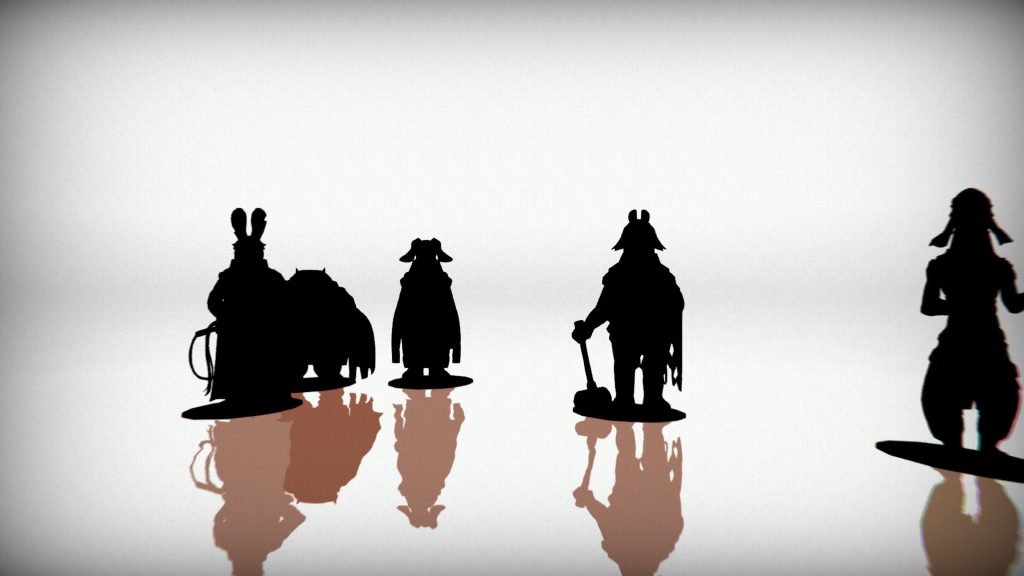 For a game entirely pinned in one small location, the Grotto sees plenty of activity. Visitors are dropping by frequently and each conversation usually has you pondering what star would best suit the person in question. Once a constellation is unlocked, you can use it whenever. This means not having to draw it every time you want to use it. That helps keep the pace up although I did have some troubles stumbling into missing stars.
For a game entirely pinned in one small location, the Grotto sees plenty of activity. Visitors are dropping by frequently and each conversation usually has you pondering what star would best suit the person in question. Once a constellation is unlocked, you can use it whenever. This means not having to draw it every time you want to use it. That helps keep the pace up although I did have some troubles stumbling into missing stars.
The system for drawing is fairly lenient but I had a couple left at the end of the game that I just couldn’t string together. I was probably overthinking it but it’s nice to know you don’t have to be exact with your placement. There’s other things to do besides looking at the stars. You’ll gain extra tools like a place to throw bones, an instrument to relax with and a pipe which helps you communicate with the dead. That turned out to be a handy representation of my accidental kill list. It doesn’t come up too often but talking to them can fulfil requests.
Grotto has a very overt mystical aesthetic. The surroundings deal with light fairly well and the palette uses purples, yellows and greens to deliver hazy, psychedelic interludes. Nighttime hammers home the dark and, late-game, the atmosphere becomes more oppressive as the end starts to come into sight. Characters feature these thick, black outlines that really help define them. It’s not a gorgeous game by any stretch but the presentation does deliver a moody effort.
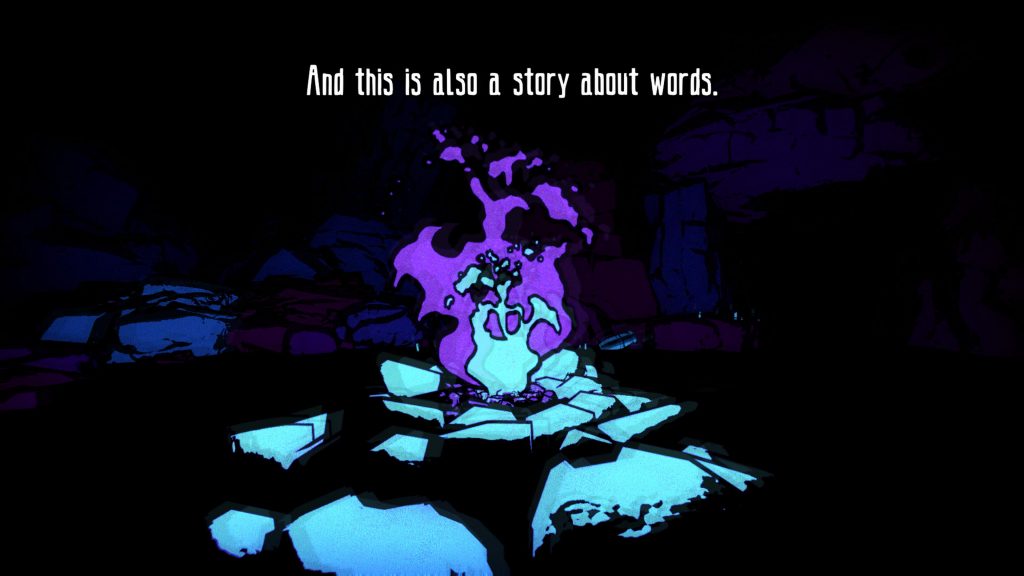 The music keeps this up with some very light vocals. Speech does feature. Whilst the tribe is largely silent, there are regular instances where another force speaks to you. It’s nicely echoed and does have an ominous presence. Their exchanges can often feel cryptic but I understood it by the conclusion. I think having a voice from the beyond does compliment the rest of the supernatural elements.
The music keeps this up with some very light vocals. Speech does feature. Whilst the tribe is largely silent, there are regular instances where another force speaks to you. It’s nicely echoed and does have an ominous presence. Their exchanges can often feel cryptic but I understood it by the conclusion. I think having a voice from the beyond does compliment the rest of the supernatural elements.
Grotto is an acquired taste but I grew to really enjoy the tribulations of The Brutes. Becoming an adviser to them and deciding their very fate can weigh a little heavy, even if it’s fiction. I think that’s the game’s strongest quality. The atmosphere can be very affecting but the real prize was seeing how my choices impacted the lives and deaths of these trusting individuals. It’s not for everyone but I would suggest checking it out.
+ Strong writing with a charming dialect for the tribe folk.
+ Atmospheric and moody presentation.
+ Stargazing can be very forgiving.
- Pacing can begin to suffer near the end.
- Very light on gameplay which might turn some people away.
